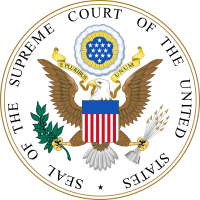Tripp May and I were quoted today in Inside Towers regarding the Supreme Court’s decision (last Friday) ending Chevron Deference. For civilians, it’s not a big deal; for the FCC and the wireless industry, it’s a REALLY BIG DEAL.
Here’s the Inside Towers article: https://insidetowers.com/municipalities-cheer-scotus-overturn-of-chevron
…and here’s an extended discussion:
On June 27, 2024, the United States Supreme Court overruled the deferential doctrine it announced forty years ago in Chevron U.S.A. Inc. v. Natural Resources Defense Council, Inc., 467 U.S. 837 (1984), Now, the Supreme Court holds that the courts must “decide all relevant questions of law . . . and set aside any [agency] action inconsistent with the law as they interpret it.” Loper Bright Enters., v. Raimundo, Secretary of Commerce, No. 22-451, p.12 (S.Ct. June 28, 2024).
Tripp May, Managing Partner of Telecom Law Firm PC says the Supreme Court’s decision in Loper represents a colossal shift in how courts review agency actions, and spells trouble for the wireless industry’s ability to influence the FCC.
What is Chevron deference and why does it matter?
Chevron deference required courts to uphold agency actions, like FCC actions, so long as:
(1) Congress had not specifically addressed an issue or left an ambiguity within the statutory scheme about that issue; and
(2) the agency action was “permissible” within the scope of such statutory gap or ambiguity.
Most importantly, Chevron deference required courts to uphold the agency action that met both these requirements even if the court thought that it had a better interpretation. This now dead doctrine even allowed federal agencies to overrule judicial interpretations given to ambiguous statutes.
Such broad and flexible deference significantly empowered and emboldened federal agencies by largely shielding agency actions from meaningful court challenges. To survive a challenge to an agency’s decisions under Chevron deference, all an agency needed to do was convince a court that the agency’s action reasonably filled a gap or resolved an ambiguity. Over the last four decades, federal agencies have had overwhelming success against judicial challenges to their actions. Loper sends a new and clear signal that the winning streak for federal administrative agencies has come to an end.
What changed after the Loper decision?
Dr. Jonathan Kramer, Telecom Law Firm’s Founding Partner said that Loper overruled Chevron and effectively killed the doctrine that insulates federal agencies from meaningful judicial review. Perhaps the most harmful blow to agency autonomy is the Supreme Court’s holding that federal courts must decide for themselves on the “best” statutory interpretation and should no longer accept an agency action that was merely “permissible” within whatever the statutory gap or ambiguity might reasonably allow. If disputes over statutory interpretation were baseball, the tie no longer goes to the agency.
How does this impact the wireless industry?
At the federal level, the wireless industry has been successful at two things: (1) getting legislation passed riddled with ambiguities, and (2) convincing the FCC to interpret those statutory ambiguities in a way favorable to the industry. Mr. May added that this was a winning strategy under Chevron deference, but almost certainly won’t fly in the new Loper era.
Ambiguous statutes used to open the door for agency discretion. Now those ambiguities invite the courts to second-guess the federal agency’s interpretation. Lobbyists for the wireless industry will have to think longer and harder about whether to push ambiguous statutes like those found in the Telecom Act or the Spectrum Act. Similarly, the FCC will have to think more carefully about whether their interpretations are the best, or merely permissible.
According to Dr. Kramer, wireless industry and FCC lawyers will now have to convince courts that the FCC was exactly right on an issue rather than just hand-grenade close.
The extra degree of difficulty imposed on federal agencies by Loper could well be a good thing: Congress could be spurred to pass clearer and more focused laws, and the FCC might be moved to more carefully consider and discuss whether it faithfully implemented congressional intent before it adopts new rules.
Maybe…just maybe…all the stakeholders will realize that they can avoid the judicial review process altogether if they just reach out and work closer to reach consensus on what the law should be, Mr. May said
